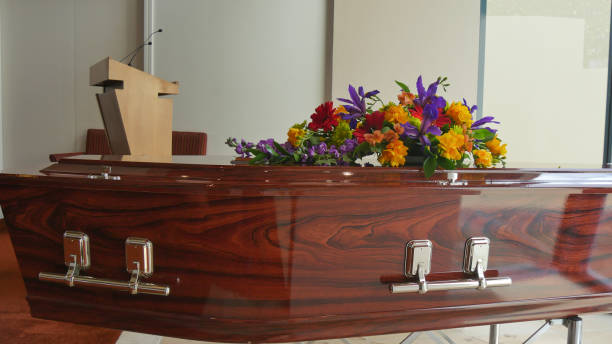The death of a loved one is a difficult and emotional time for everyone involved. Along with the grieving process, there are practical decisions that need to be made, including when to hold the funeral service.
While there is no set timeframe for holding a funeral in the United States, it is typical to have the service within a few weeks of the person’s passing. However, various factors can affect funeral timing, such as family travel, complicated last wishes, and financial reasons.
This article will explore the topic of funeral timing, including the factors that can impact when a funeral is held and the options available for delayed funerals. We will also discuss the costs associated with traditional funerals and alternative options, such as cremation and virtual funerals.
While the decision on when to hold a funeral can be a difficult one, it is important to consider all factors and find a solution that is respectful and meaningful for the deceased and their loved ones.
Factors Affecting Timing
Various factors can impede the timely commencement of funeral services, including logistical challenges, religious considerations, and financial constraints. Funeral services typically require a significant amount of planning and coordination, which can take time to finalize.
Families may also need to make arrangements for out-of-town relatives to travel to the service, which can add to the delay. Additionally, inclement weather can disrupt transportation logistics, making it difficult for the family and guests to attend the service.
Religious considerations can also impact the timing of a funeral service. Some religions require immediate burial or cremation, while others have specific rituals or mourning periods that must be observed before the funeral can take place. In some cases, the family may need to wait for a religious leader to be available to perform the service, which can also cause delays.
It is important to work with the funeral director and any religious leaders or advisors to ensure that the service is conducted in accordance with the family’s wishes and religious beliefs.
Options for Delayed Funerals
Cremation is often suggested as an alternative option for families considering a delayed service, as it eliminates the need for embalming and storage costs. Cremation involves the process of reducing the body to ashes through heat and flame, and it can be done immediately after death, or after a delay. In cases where the funeral service is delayed, cremation can be a practical solution as it allows families to schedule a service at a later date.
Apart from cremation, virtual funerals are another option for families who wish to delay a service. Virtual funerals have become increasingly popular due to the COVID-19 pandemic, but they offer several advantages even outside of the pandemic context.
Virtual funerals can save money, as the need for a physical venue and transportation is eliminated. Additionally, there is no need to embalm the body for virtual funerals, which can help reduce costs and accelerate the timeline for holding the service.
Cost Considerations
When considering the financial implications of planning a post-death service, it is important to take into account the various costs associated with traditional funerals. The average cost of a traditional funeral in the U.S. is around $7,000-$8,000, which can be a significant burden for many families. In addition to the cost of the funeral itself, there are also expenses such as embalming, storage of the body, and transportation that can quickly add up.
For those who are budget planning and looking for more affordable options, virtual funerals can provide significant benefits. Not only are they cheaper than traditional funerals, but they also eliminate the need for embalming the body, which can save additional costs. Virtual funerals can also help accelerate the timeline, allowing for a more timely and efficient service. By discussing options with a funeral director and considering the benefits of virtual funerals, families can make informed and budget-conscious decisions when planning a post-death service.
| Pros of Virtual Funerals | Cons of Traditional Funerals |
|---|---|
| Cheaper than traditional funerals | Higher cost |
| No need for embalming the body | Requires embalming |
| Can be done remotely | Requires travel for attendees |
| Can accommodate a larger audience | Limited seating capacity |
| Can be recorded for future viewing | Limited time for viewing |

